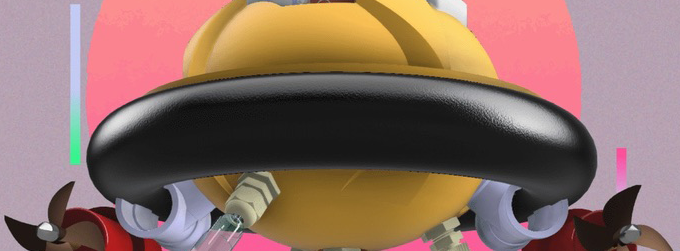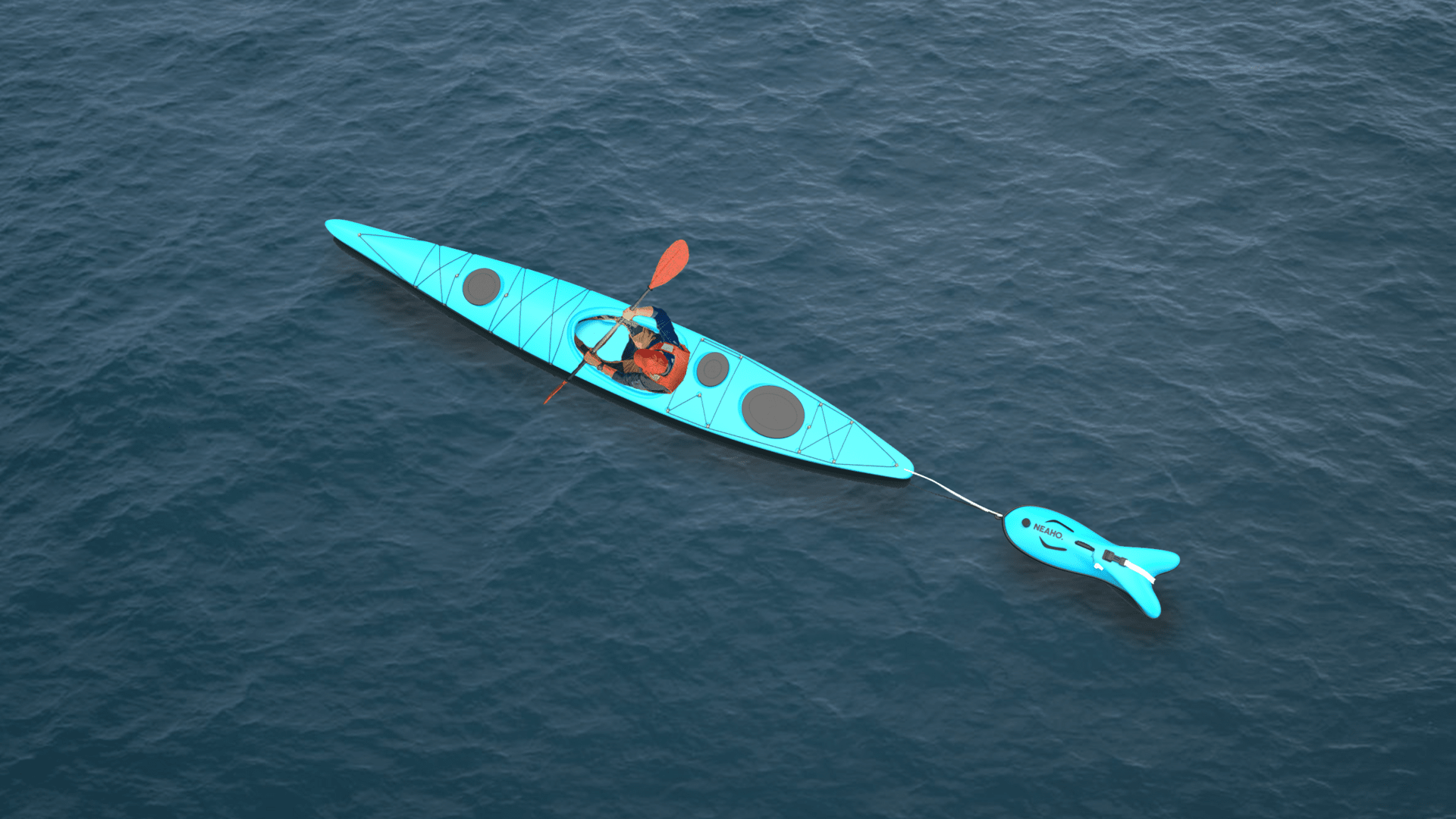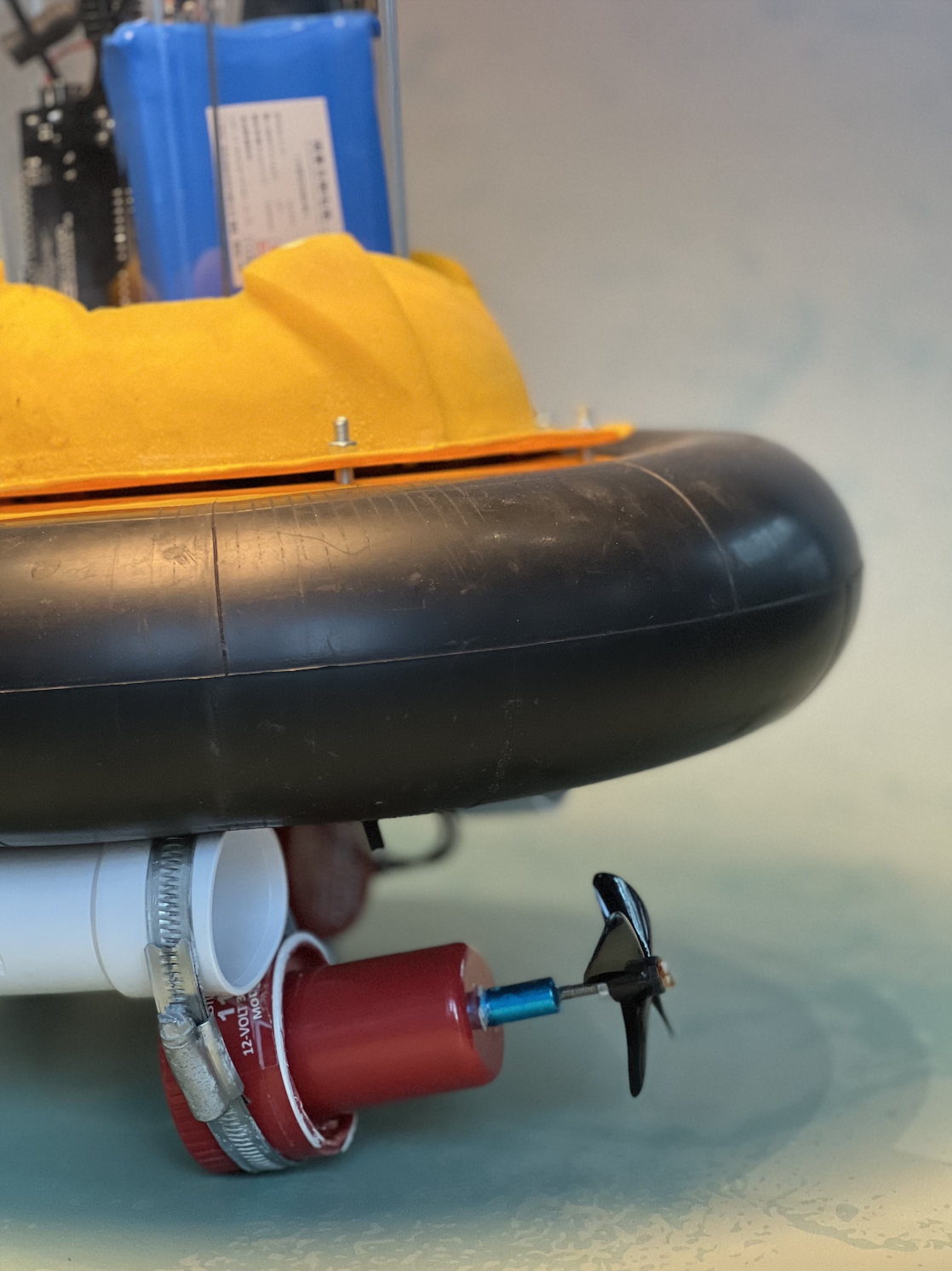
Key details
Date
- 7 July 2023
Author
- RCA
Read time
- 4 minutes
In the run up to the 2023 Helen Hamlyn Design Awards, we caught up with two of last year’s winners, Luisa Charles and Ryan McClure, who following their success at the awards, founded Wateraware Collective together.
Key details
Date
- 7 July 2023
Author
- RCA
Read time
- 4 minutes
“After seeing our work at the awards, Northumbrian Water, who sponsored the award that I won, presented us with an offer of support for our first year as a startup as we developed technologies that might benefit them in the future,” says Luisa Charles. “We are now running a pilot of Ryan's final project, Neaho, that is sponsored by Northumbrian water.”
Both Luisa and Ryan’s projects centred on collecting water quality data. Ryan McClure won The Helen Hamlyn Award for Creativity for his project, Neaho, which sought to develop an innovative, creative way for people to passively engage in collecting vital environmental data for waterways while doing their favourite water-based hobby. Luisa’s project, FLOAT, a robotic Unmanned Surface Vehicle (USV), that measures water quality data in real time, was her final project on her MA+MSc Global Innovation Design course, and was awarded The Northumbrian Water Award for Inclusive Innovation.

Taking the form of a tow float dry bag that records water quality data, Neaho can be used by people doing any number of water activities, from kayaking to paddle boarding and even swimming! The aim was to connect different groups, and bridge the gap between concerned citizens, hobbyists, scientists and grassroots activism, thus developing a way to tackle environmental issues more inclusively. “I believe in the importance of curiosity, questioning irrational principles, and pushing boundaries. It was during moments of outdoor activities such as kayaking, surfing, or swimming with my dad as a child that I discovered the ability to discuss complex topics like safeguarding our natural world and creating equitable policies. I began to ask myself “how could people of opposing ideologies and diverse backgrounds come together to tackle environmental issues at scale?” It was this questioning that formed the basis of my project.”

Ryan drew on his own experiences as an environmental activist in the development of his project. “As a member of Extinction Rebellion, I participated in a two-week canoeing expedition across Northern Ireland in August 2020. Throughout our journey, we connected with local communities and drew attention to the destruction of precious, protected habitats caused by the rushed construction of sections of the new A6 road. We also raised awareness about the degradation of our rivers due to slurry, quarrying, and gold mining, and the unsustainable fishing practices endangering species like eels, dollaghan, and salmon, contributing to their decline and potential extinction.
“What we discovered along our expedition was that people from all walks of life were willing to join us and engage in finding solutions. This realisation further reinforced the notion that outdoor activities, when integrated with activism, can bridge gaps between individuals with differing viewpoints and facilitate collaboration toward a common goal.”

Her project, Luisa says, “developed organically - I was interested in robotics, inclusive design, and environmental protection, and spent much of the early development reaching out to organisations with a view to be able to test an environmental monitoring robot(s) in a live, extreme environment. I began working with the Cobra Collective and the International Water Management Institute on the Darwin Project. The idea for FLOAT was developed based on studying the case study notes for the areas I was working in in Colombo City, as well as co-design workshops with community members, government representatives, and water quality experts. Making the system as low cost as possible was imperative from the beginning; the idea of using everyday objects to build the robot arrived serendipitously - I found myself in an unfamiliar place, without access to specialist tools or materials, and had to work with what I had around me.”

Since winning the Award and graduating from his MA at the Royal College of Art, Ryan has not stopped thinking, acting and designing inclusively. “One of the most pressing challenges currently faced by the water industry is the erosion of its national reputation and customer trust. There is a tremendous opportunity to focus on building trust and showcasing how design can build bridges - not walls - which is what we are actively exploring. There exists immense potential to ascertain whether both the industry and citizens can work together and collaborate towards making progress. This collaboration can generate a genuine sense of transparency, democratisation, and shared responsibility for finding solutions.”
And he is still working on developing his award-winning project, currently implementing a pilot project with a group of wild swimmers in London. “The pilot initiative involves deploying our prototype with swimmers during their daily swims in various freshwater environments to collect water quality data. The primary objective is to assess the robustness and reliability of this data collection method and to explore the potential insights we can gain about different water bodies through a network of citizen scientists gathering data. The culmination of this pilot will be the presentation of our results and insights at the upcoming Northumbrian Water Innovation Festival in July. This event will be attended by key individuals from the water industry, providing us with an invaluable opportunity to network, receive feedback on our current offering, and develop the next iteration of our project. Following this, we have planned another pilot with the Rivers Trust towards the end of August or early September, where we will continue to refine our approach and gather further data.

Like Ryan, Luisa is still working on her project, and has plans to develop it further. “The second version of my project, FLOAT, took place in the Rupununi, Guyana in March/April this year. This time, I worked with community researchers and data technicians of the Makushi tribe. We co-designed a version of the FLOAT robot made from natural materials such as bamboo and kokrite sheath, as well as a static water quality sensing unit made from balata rubber. This is an ongoing project with a view to return to the rainforest this year, and potential funding in the pipeline to continue in five more countries across the next three years. I am also developing a framework for participatory design that incorporates traditional knowledge and practices with state-of-the-art technologies and methods. This I hope can be transferrable to other projects and designers that are working with communities outside of their own culture to tackle complex challenges. The methodology prioritises equal collaboration, capacity building, sustainability (both environmental and logistical), and honouring traditional knowledge in tackling complex challenges - particularly in the climate space.”